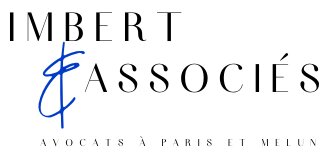Best Collaborative Law Lawyers in Melun
Share your needs with us, get contacted by law firms.
Free. Takes 2 min.
Free Guide to Hiring a Family Lawyer
List of the best lawyers in Melun, France
About Collaborative Law in Melun, France
Collaborative Law is a legal approach focused on resolving disputes amicably and efficiently through a cooperative framework. In Melun, France, Collaborative Law is aimed at settling matters outside of court, which can be particularly beneficial in family law cases, such as divorces, custody disputes, and other sensitive matters. Trained collaborative practitioners including lawyers, financial experts, and mental health professionals work together with parties to reach mutually satisfactory agreements without the adversarial nature of traditional litigation.
Why You May Need a Lawyer
There are various reasons why individuals in Melun may need a lawyer experienced in Collaborative Law. Collaborative Law is often pursued in situations such as divorce, child custody arrangements, business disputes, and other civil matters where ongoing relationships need to be preserved. Individuals seeking a less confrontational and more dignified process to resolve disputes find the collaborative approach to be advantageous as it emphasizes open communication and problem-solving.
Local Laws Overview
In Melun, France, as in the rest of the country, Collaborative Law is framed within the broader context of French civil law. Melun practitioners adhere to the principles established by the International Academy of Collaborative Professionals (IACP) and the French rules governing family and civil disputes. In such processes, confidentiality is a critical aspect, ensuring that discussions during collaborative sessions stay between involved parties. Moreover, a notable provision under French law is that once involved in a collaborative process, the lawyers agree not to represent their clients in court should the process fail, underscoring a commitment to finding out-of-court solutions.
Frequently Asked Questions
What is Collaborative Law?
Collaborative Law is an alternative dispute resolution method aimed at resolving disputes amicably without going to court.
How does Collaborative Law differ from mediation?
While both approaches seek to resolve disputes outside of court, Collaborative Law involves each party having their own lawyer as part of a team to assist in negotiations, while mediation typically involves a single neutral mediator.
What types of cases are suitable for Collaborative Law?
Collaborative Law is suitable for family law cases, employment matters, business disputes, and any other situation where maintaining a relationship and confidentiality is important.
What are the main benefits of using Collaborative Law?
Key benefits include reduced costs, faster resolution, confidentiality, and the potential to maintain amicable relationships post-dispute.
Can any lawyer practice Collaborative Law?
No, lawyers need specific training and accreditation in Collaborative Law to practice effectively within this model.
What happens if Collaborative Law doesn't result in an agreement?
If an agreement isn't reached, the parties must hire new lawyers to proceed with litigation as the collaborative lawyers cannot represent them in court.
How long does the collaborative process usually take?
While timelines vary depending on complexity, collaborative law typically results in quicker resolutions compared to traditional litigation.
Are collaborative sessions confidential?
Yes, discussions and documents produced during the collaborative process are kept confidential.
How do costs compare between Collaborative Law and traditional litigation?
Generally, Collaborative Law is less costly than traditional litigation as it tends to involve fewer billable hours and court fees.
Is Collaborative Law recognized and practiced widely in Melun?
Yes, Collaborative Law is increasingly recognized in Melun as a viable and effective method for resolving disputes.
Additional Resources
For those seeking more information, the French Collaborative Professionals Network and the International Academy of Collaborative Professionals offer valuable resources. Local legal clinics and the Melun Bar Association also provide assistance and can offer referrals to trained collaborative lawyers in the region.
Next Steps
If you require legal assistance in the field of Collaborative Law in Melun, the first step is to identify a lawyer who is experienced and trained in this area. It is advisable to schedule a consultation to discuss your specific needs and to ensure that Collaborative Law is the right approach for your situation. Always ensure to confirm their certification in Collaborative Law and discuss their approach to handling such matters.
Lawzana helps you find the best lawyers and law firms in Melun through a curated and pre-screened list of qualified legal professionals. Our platform offers rankings and detailed profiles of attorneys and law firms, allowing you to compare based on practice areas, including Collaborative Law, experience, and client feedback.
Each profile includes a description of the firm's areas of practice, client reviews, team members and partners, year of establishment, spoken languages, office locations, contact information, social media presence, and any published articles or resources. Most firms on our platform speak English and are experienced in both local and international legal matters.
Get a quote from top-rated law firms in Melun, France — quickly, securely, and without unnecessary hassle.
Disclaimer:
The information provided on this page is for general informational purposes only and does not constitute legal advice. While we strive to ensure the accuracy and relevance of the content, legal information may change over time, and interpretations of the law can vary. You should always consult with a qualified legal professional for advice specific to your situation.
We disclaim all liability for actions taken or not taken based on the content of this page. If you believe any information is incorrect or outdated, please contact us, and we will review and update it where appropriate.








